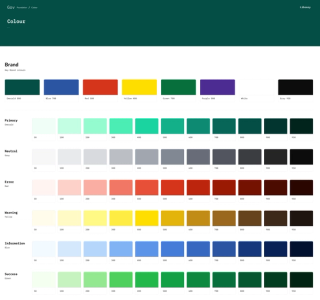I have a confession to make.
I began working at Kooba two months ago, and unlike almost everyone else at this company, I cannot design or build a website worth visiting.
Perhaps, however, that is for the best. As somebody who is not a designer, I can view the web design process from a detached perspective and ask the stupid questions that experts might never consider. The results can be enlightening, especially for us in marketing, who may be slightly less familiar with the challenges, and possibilities, of web design.
Here’s a few personal observations on how you can better understand (and benefit from) the world of web design:
The sky is the limit
Web design, put simply, can provide you with anything you want.
I mean it. Compared to the other forms of content delivery and user engagement available to marketers, a website is a genuine blank canvas. Take for instance:
- The colour mixing feature on https://www.dopplepress.com/
- Google Chrome’s gamified marketing on https://chromepitcrew.withgoogle.com/
- This fun interactive research project https://ismy.blue/
A clever website can solve otherwise impossible problems and allow marketing teams to think outside the box in productive and transformative ways. This is, in my opinion, a frequently missed opportunity by firms investing in a website, especially those with an already creative approach to their marketing strategy. Given that every other channel you communicate through (especially online) requires your content to be squeezed through a restrictive template, why would you do the same with your website? Do something crazy, or at least consider it!
The marketing machine
In marketing, it is all too easy to isolate one factor from the broader environment that it exists within. I wouldn’t blame you, it's always tempting to measure whatever we can, regardless of context. However, marketing campaigns are complex ecosystems, and every element affects every other in a variety of ways.
Websites are no expectation. Rather than seeing a website as a tool that can produce a certain volume of leads at a certain cost, it is better to view it as one component of a much larger machine. When a website generates leads, it does so thanks to previous efforts made by your marketing team, without which it would simply be a beautiful waste of time and money. Inversely, the success of your brand marketing, social media and advertising hinges in part on a well-designed website. By focusing on the specific role that a website plays within your wider “marketing machine” you can find real value, and make better decisions throughout its design and development.
Doing this not only improves the ROI of your total marketing spend, but will also reduce the cost of your website. Instead of assuming that your website will need to do absolutely everything, you can approach a design agency with a more focused and minimal brief, which can be delivered both faster and cheaper.
If, for instance, your site only needs to generate leads, it may be wasteful to build complex content pages which nobody actually needs to visit. Chances are your website does not need a complete overhaul, and that a few clever tweaks can make a dramatic difference to the metrics you actually care about. Of course, the real value of a UX designer is in knowing what those tweaks are, and how to successfully implement them. One surprising observation I’ve made at Kooba is that our design team spends more time shrinking the scope of projects than expanding them. By knowing exactly what to change, they can minimise the scale of renovation needed to deliver outstanding results.
Help out
There’s a lot that web design can do for your marketing campaigns, but it can’t do anything by itself. Even if you are completely oblivious to the techniques, metrics and jargon of the industry, you need to provide your own input and collaboration if you want to see the best results. Remember, designers are not mind readers, and only you know the intricate details of your business model and marketing strategy. By constantly contributing to the design process with your insights and perspective, you can help build a solution that works perfectly for your unique and specific needs. If an agency truly cares about your website you shouldn’t be surprised when they ask you for advice, they genuinely need it!
I would also recommend learning a bit about the metrics most relevant to your project. Understanding what you can (and can’t) measure across your website is crucial in communicating clear achievable goals with a design agency. For a great overview of the basics, I would highly recommend Duncan Menzies’ blog on the subject. By understanding how these numbers are calculated and the user behaviour that they represent, you can make better informed decisions during the design process and gain valuable insights into your broader marketing strategy.
Be selfish
For anybody working in marketing, thinking about the UX and information architecture of your website should be a clarifying experience. It forces us to ask deep and insightful questions about the nature of our brands and products, to prioritise certain messages over others, and to immerse ourselves in our audiences’ experience. These are very, very, valuable activities from a strategic perspective, and should be embraced, not swept aside or rushed over. Ideally, your website should not only reflect your messaging and brand identity, but also influence how you understand it yourself.
Beyond the benefits that design thinking provides to your company's marketing strategy, it also offers some other slightly more selfish upsides. By thinking in terms of user experience and customer journeys, and by learning from actual UX professionals, web design can help upgrade your personal understanding of how, and why, users convert. An understanding of UX carries over into every form of content you will ever produce, and rubbing shoulders with designers is an easy and enjoyable way of immersing yourself in this knowledge.
Keep learning
There are a lot of valuable skills and knowledge that marketing professionals can take from web design. Despite my best efforts, I suspect I have barely scratched the surface here, so will link some resources I have found especially helpful:
- Norman Nielsen Group, the go to source for evidence-based UX info.
- Smashing Magazine, a great window into contemporary web design ideas and debates.
- Syntax.FM, a podcast that goes more in-depth into web development.
- Awwwards.com, a brilliant source of inspiration if you’re beginning a new project.
And, of course, the Kooba journal! Seriously, if you found this interesting, there’s far more where it came from, and written by team members far more experienced than myself.








